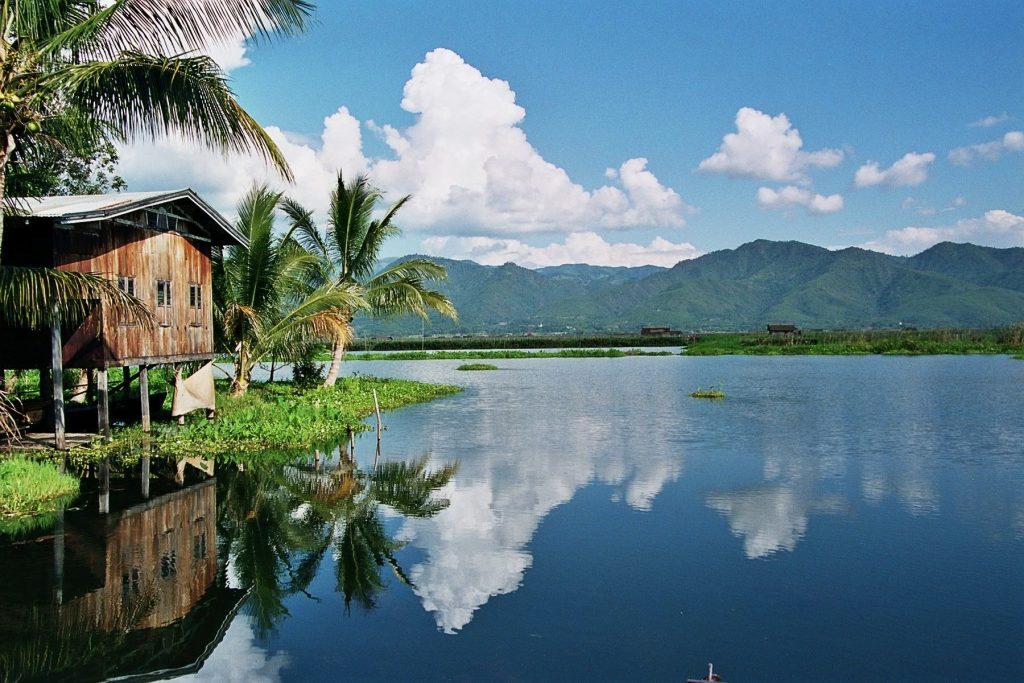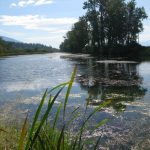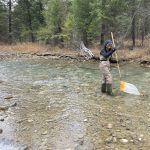Living Lakes Canada invited to share best practices with local water stewardship groups in Myanmar
Living Lakes Canada (LLC) recently presented a Canadian NGO perspective on lake management to an international audience—the United Nations Development Programme (UNDP) Myanmar.
LLC was invited to speak about its programs before a panel of UNDP representatives concerned with the future of Inle Lake, a large freshwater lake in Myanmar. Most importantly, said Program Coordinator Georgia Peck, who delivered the presentation, LLC wanted to inspire the UNDP representatives about what non-profits can accomplish and the kind of water stewardship impact they can have. Myanmar has been in political turmoil since the military seized power back in February after only five years with a democratically elected government. Since the coup, many non-governmental organizations in Myanmar are under scrutiny and/or restrictions to operate.

Inle Lake, Myanmar. Wikimedia Commons photos
Inle Lake belongs to UNESCO’s World Network of Biosphere Reserves and is designated as a Ramsar wetland site of international importance. But, like so many of Canada’s own lakes, Inle Lake is under intense pressure from pollution, overfishing, population growth, agriculture, and climate change impacts. A management plan is being developed in hopes of ensuring its health in the future.
Peck’s presentation highlighted LLC’s community-based water stewardship and its broad approach that takes entire watersheds into consideration, including lakes, rivers, creeks, wetlands, groundwater, and biodiversity. She emphasized the importance of engaging a variety of lake users with differing interests and concerns to collectively address and apply a holistic watershed management model.
“In Canada, for example, shoreline property owners and local residents have significant knowledge about their lakes, and they’re invested in them for many reasons. Our role at LLC is to help them become water stewards, and to bring together diverse, balanced groups of leaders to address all aspects of the watershed’s health. Environmental concerns need to be addressed but so do the concerns of people who rely on the lake for tourism or fisheries revenue. It’s all important.”
The UNDP representatives were impressed with the variety, scope, and impact of LLC’s water stewardship programs and eager to learn more following the presentation.
“The reception was very positive,” according to Peck. “The UNDP representatives asked insightful questions. They were particularly interested in Foreshore Integrated Management Planning and the Columbia Basin Water Hub, both of which provide critical data to support evidence-based decision-making and a holistic approach to water management.”
Foreshore Integrated Management Planning, or FIMP as it is more commonly known, is a Canadian federal protocol that assesses the ecological and urban development changes to shorelines through lake surveys. LLC is currently leading a four-year FIMP project in the Canadian Columbia Basin where it’s updating and applying the federal methodology to a number of priority lakes. The Columbia Basin Water Hub, another project facilitated by LLC, is a central online database where decision makers can access a wide variety of water data collected by regional and municipal governments, stewardship groups, the private sector, and others.
“Partnerships and collaboration are essential,” Peck reiterated. “Even by starting small with local monitoring projects, we’re helping community engagement grow with increased understanding regarding the health of lakes and their well-being, thereby allowing decision makers to better understand the need of collective, co-ordinated stewardship for people who depend on the lake.”
The experience left a lasting impression on Peck.
“Engaging in this meaningful dialogue with individuals from such a different place as Myanmar reminded me that it’s not just our own backyard that is benefiting from our work. We are able to share best practices with other stewardship groups working in very challenging political circumstances but are still deeply committed to stewarding their waterways.”





